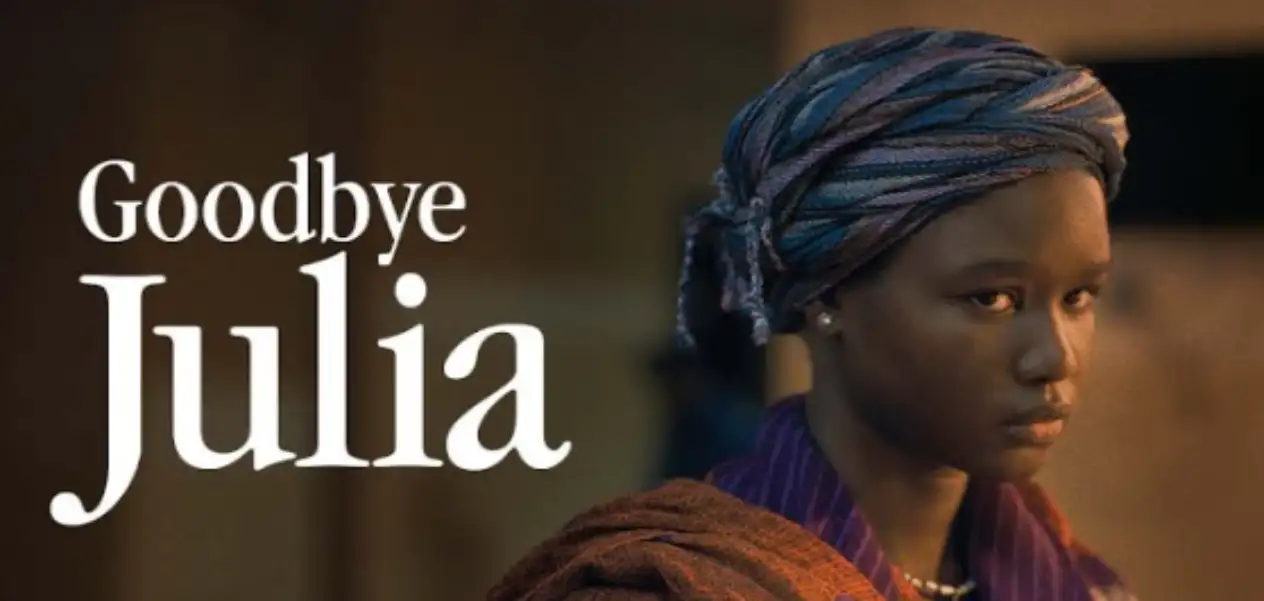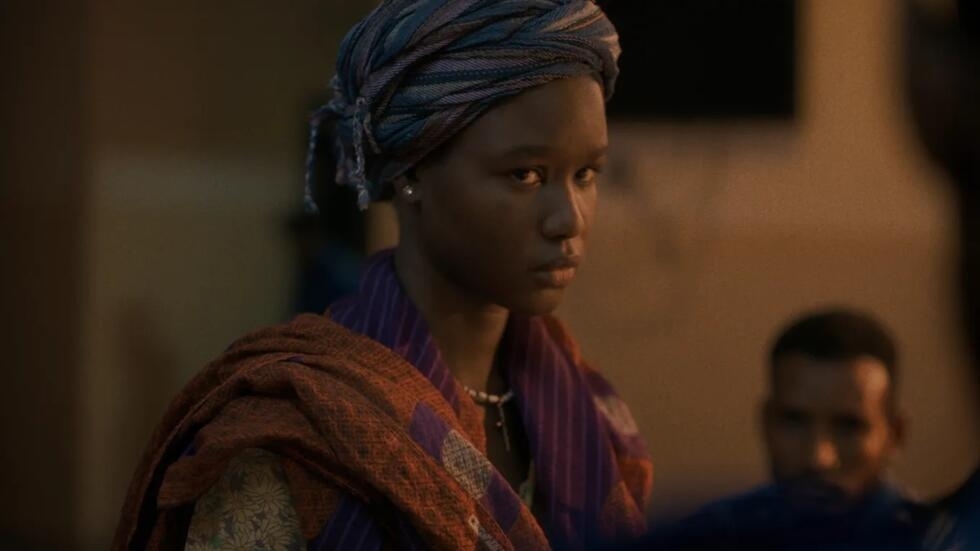
Ajit Rai/Al Gouna (Egypt)
Mohamed Kordofani's film Goodbye Julia from Sudan has been awarded The Cinema for Humanity Audience Award at the 6th Al Gouna Film Festival (Egypt). The film’s world premiere was at the 76th Cannes Film Festival in May; it was shown in the Uncertain Regard category at the festival.
Acclaimed by film critics around the world, the film achieved tremendous success at the box office in cinema halls of Egypt, France, and Arab countries. This time the film was the official entry of Sudan for the 96th Academy Awards. Arab funding agencies from all over the world have supported the production of this film.
Famous fashion model Siran Riak, who held the crown of Miss South Sudan, has played the lead role of Julia. The second lead role is played by Sudan's famous singer Aiman Youssef. For both of them, this was their first acting experience.
.jpeg)
A scene from the movie Goodbye Julia
During the 30-year military dictatorship of Omar al-Bashir (1989-2019), three to four lakh civilians were killed in Sudan. Finally, in 2019, Omar Al Bashir was convicted and jailed.
Sudan was an Islamic state from 1983-2000. Only three years ago, its constitution was changed and It became a secular country. The fighting between the Sudanese Armed Forces of Abdul Fateh Al Barhan and the rebel forces of Mohammed Hamdan Dagalo continued till April. About five million Sudanese are reported to be on the verge of starvation.
The film's director Mohammed Kordofani is a Northern Sudanese Arab. He regrets that the Arabs committed many racist atrocities and that led to the partition of Sudan. He says that this film is a small attempt at atonement. He accepts that after the release of this film in Sudan, he will be accused of tarnishing the image of the Arabs and will have to face severe harassment and persecution.
While passing through the Dalit colony of Khartoum, the capital of Sudan, suddenly a child Daniel is hit by the car of a rich Arab woman Mona (Aiman Youssef). Daniel is the only child of Julia, a South Sudanese Christian woman. The child's father chases Mona on a motorcycle and reaches her house.
.jpeg)
Mona struggles with the guilt that Julia's child became an orphan because of her. Mona was a famous singer who had to give up singing career to marry Amir Akram. At that time she was in love with a progressive handsome young man named Tariq. The film tells the unique story of the unlikely sisterhood of Mona, a wealthy Arab in North Sudan, and Julia, a poor Christian widow in South Sudan, set against the backdrop of the politics of racial violence in Sudan.
Without telling her husband Mona goes to a police station where she bribes a pileman and gets Julia's address. Akram is acquitted of murder as Arabs are influential people in the country. Mona goes to Julia's house to meet her and her child.
She comes to know that Julia's house has been snatched away and she is somehow raising Daniel by working as a labourer. To deal with her guilt, Mona brings Julia and her child home without telling Akram and hires her as a maid. From here the film delves into the sensitive and intimate sisterhood of two different women.

Rich Arab kids consider him untouchable. Daniel learns that Akram, the owner of the house where he and his mother are refugees, is his father's murderer. He sees his father's snatched motorcycle with an Arab shopkeeper.
At the same time, the guerrillas of the Sudan People's Liberation Army are uniting the people of Southern Sudan for independence from the Arabs in the Church. Their commander puts pressure on Julia in various ways to leave the Arabs and join the fight. One day, without telling his mother, Daniel goes to church and asks the commander to take revenge for his father's murder.
At midnight the commander and his guerrillas raid Akram's house. Julia tells them not to give political color to an accident. Akram saves his life by apologizing unconditionally to Julia and the Commander. Obviously, after this incident, Julia has to leave Mona's house.
Now Sudan has been divided. We see Julia and Daniel traveling with the Commander first in a motorboat and then in an army truck towards South Sudan. Here, Mona is also seen singing freedom songs in a club after being freed from her husband.
Ajit rai is a veteran film critic
